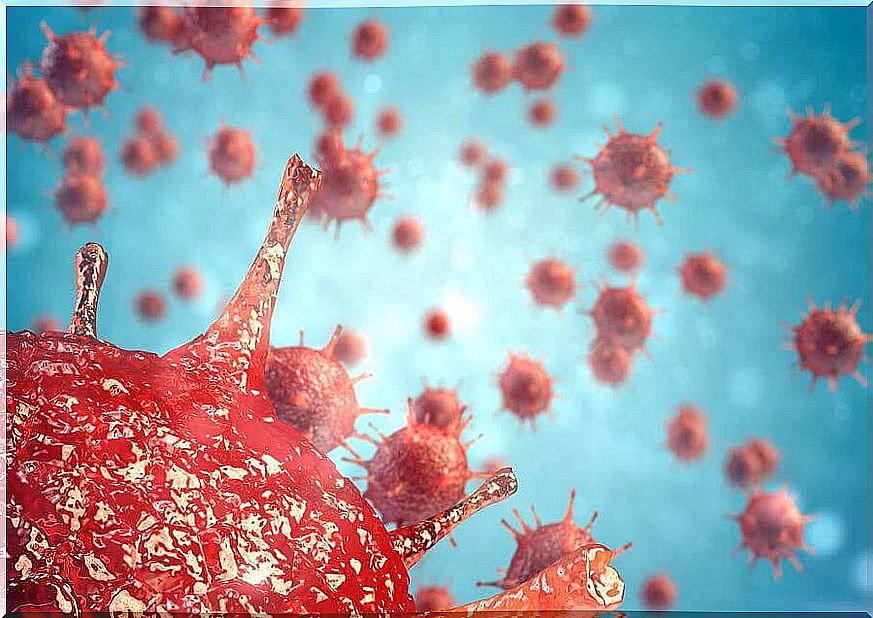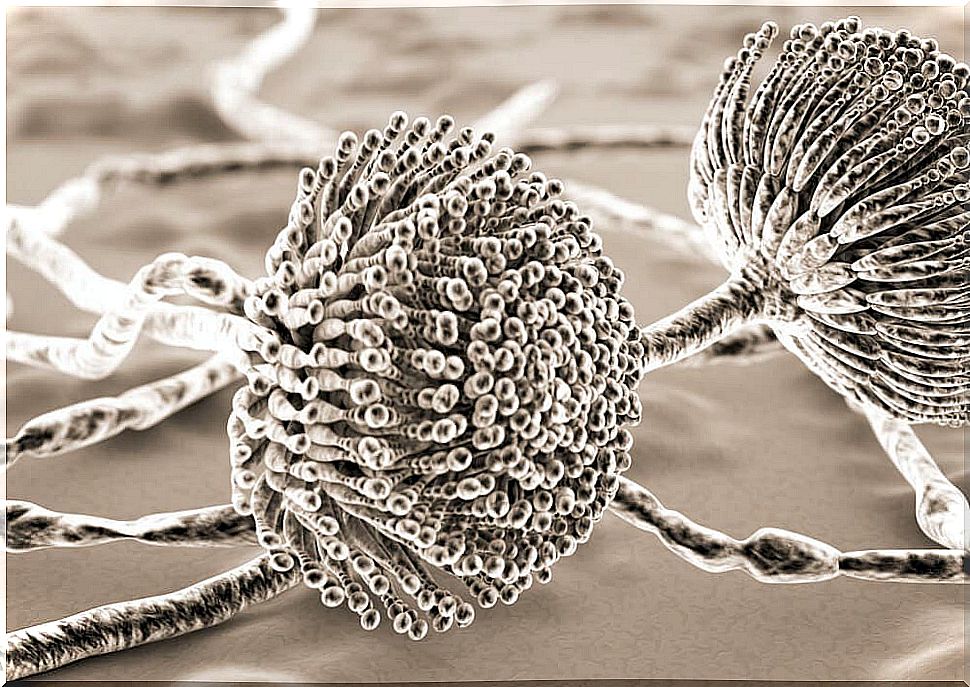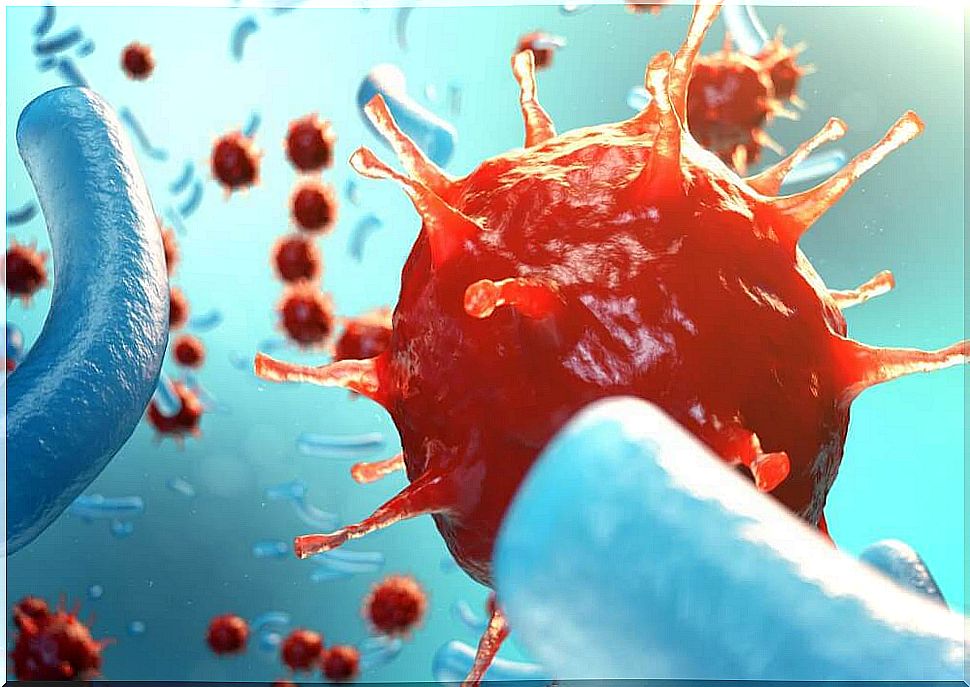How Does The Immune System React To Viruses?
Knowing exactly how the immune system works is fundamental to fighting viral infections. Much research is devoted to this topic and trying to gain new knowledge. Find out more about it today!

Knowing how the immune system reacts to viruses is of the utmost importance in finding new therapeutic options. As is well known, antibiotics have no effect on viruses, so we need other, effective antivirals to cure diseases.
In recent years research laboratories have achieved important successes and developed new antivirals and antiretroviral drugs to fight viruses such as hepatitis C or HIV, for example. Even the viral load could be reduced, which made it possible to stabilize the patients.
However, in chronic viral infections, there is a serious problem resulting from the superposition of diseases.
Many patients with a viral disease also suffer from secondary infections, also known as superinfections. This means that the viral infection is the basis for additional bacterial or fungal infections. This is the case, for example, with COVID-19, a disease that is often associated with bacterial pneumonia.
In order to better understand the virus defense mechanisms of the immune system, various studies are currently being carried out in which infections are combined. This was also the case in a new research study from the University of Birmingham published in late February.
Study explains how the immune system reacts to viral infections
The aforementioned article was published in the journal PLOS Pathogens by researchers from the University of Birmingham, the Pirbright Institute and the University College of London under the direction of Professor Robin May.
To conduct this study, the researchers analyzed virus-infected white blood cells that were exposed to a specific fungus: Cryptococcus neoformans. It is an opportunistic fungus that targets people with compromised immune systems.
This comparison between development in the laboratory and in normal life is extremely important. Diseases like AIDS weaken the immune system, but the patient does not die from the disease itself, but from the superinfection.
Opportunistic mushrooms take advantage of the weakness of their victim’s immune system to install and reproduce. So the complications and death are caused by pneumonia or fungal sepsis, not the initial virus.

The results of the study
Before starting the research, the scientists assumed that there are two processes that the immune system uses to fight viral and mycotic infections. In the case of viruses, the white blood cells take up the extracellular particles. Scientifically, this process is called phagocytosis.
Although phagocytosis usually occurs in fungi as well, in some cases the exact opposite is the case: the white blood cells expel the particles. This is known as vomocytosis, a mechanism that occurs less frequently but forms the basis of the researchers’ new discovery.
When looking at the white blood cells under the microscope to analyze their mechanism of action in two infections, the scientists were able to see that vomocytosis accelerates significantly when a virus is added. This means that the white blood cells expel the mushrooms faster when they are fighting a virus.
The research team therefore assumes that the immune system accelerates the process in order to free resources for the fight against the second threat. We don’t know if this is more efficient, but there seems to be some kind of internal intelligence that decides which fronts reinforcements are needed on.

How can we benefit from this discovery?
The research sheds light on a discussed and dangerous aspect for chronically ill people with immunodeficiency. If we know how the immune system works against viral infections, especially how it works against opportunists, we can better help AIDS patients, for example.
The aim of this line of research is to develop a treatment protocol for opportunistic infections to help immunodeficient patients. As mentioned earlier, those affected die from an infectious pathogen that invades a weakened body and for which there is no treatment.
If, in addition to antifungal and antiviral and antibacterial drugs, we have a treatment that stimulates the immune system, it could improve the efficiency of white blood cells. It’s an important topic when you consider that, for example, the fungus used in the research study causes over 200,000 deaths around the world each year.
We also have to ask ourselves whether the immune system’s rapid defense against the fungus can prevent it from damaging the organs even more. What if this acceleration is really a weakness in the defense mechanism and not a natural intelligence? More research is needed to answer these questions.
The immune system not only fends off viral infections
Viral infections may come to mind first, but there are also bacterial pneumonia, fungal infections, and other pathogens that our immune system must fight off. Strong immune systems are the key to a life with fewer infections.









